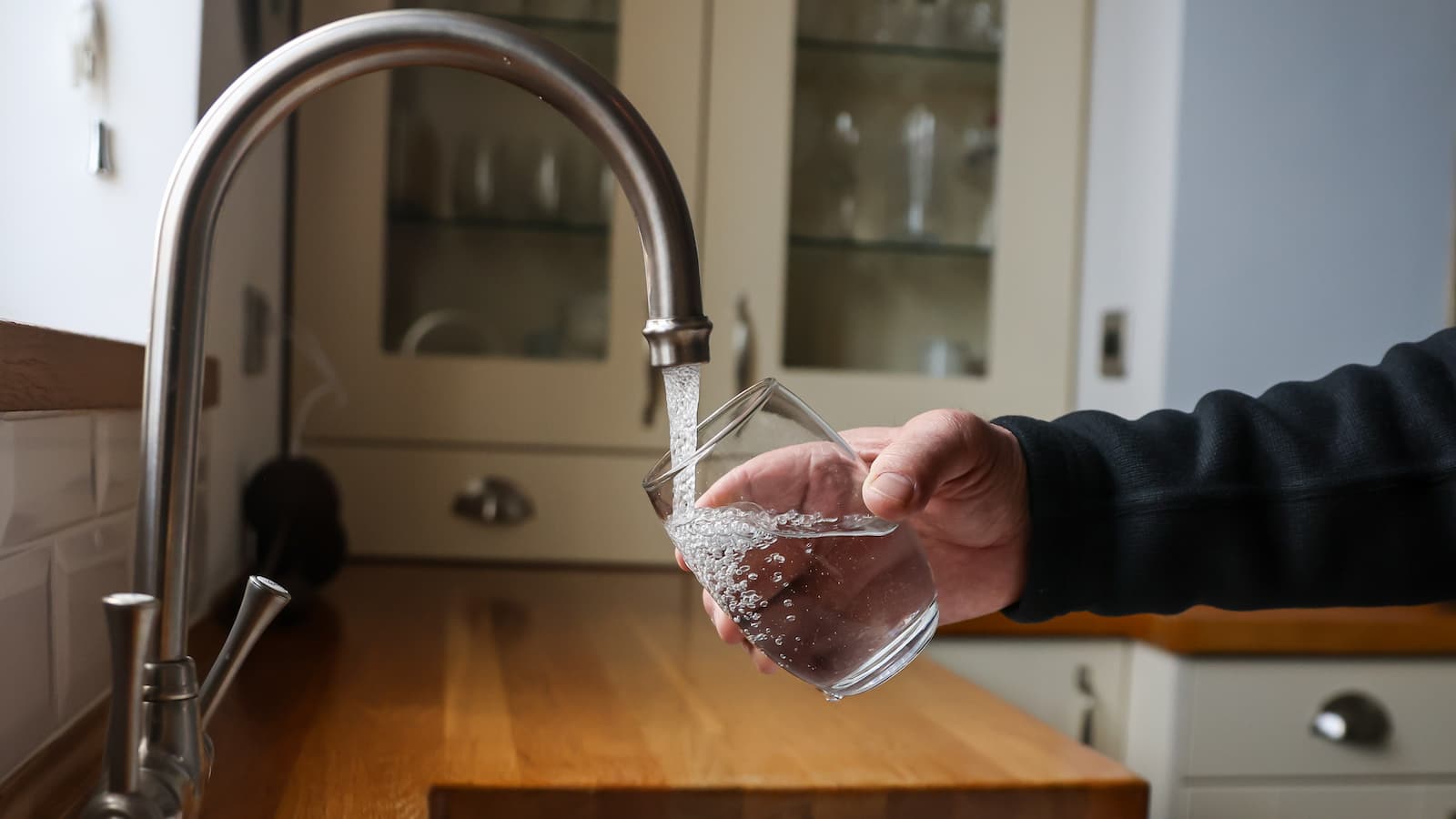Curious about new staircase costs? Find out how much you can expect to pay to replace your old staircase
From basic to bespoke, discover how much you’ll need to set aside to get the perfect staircase for your renovation project
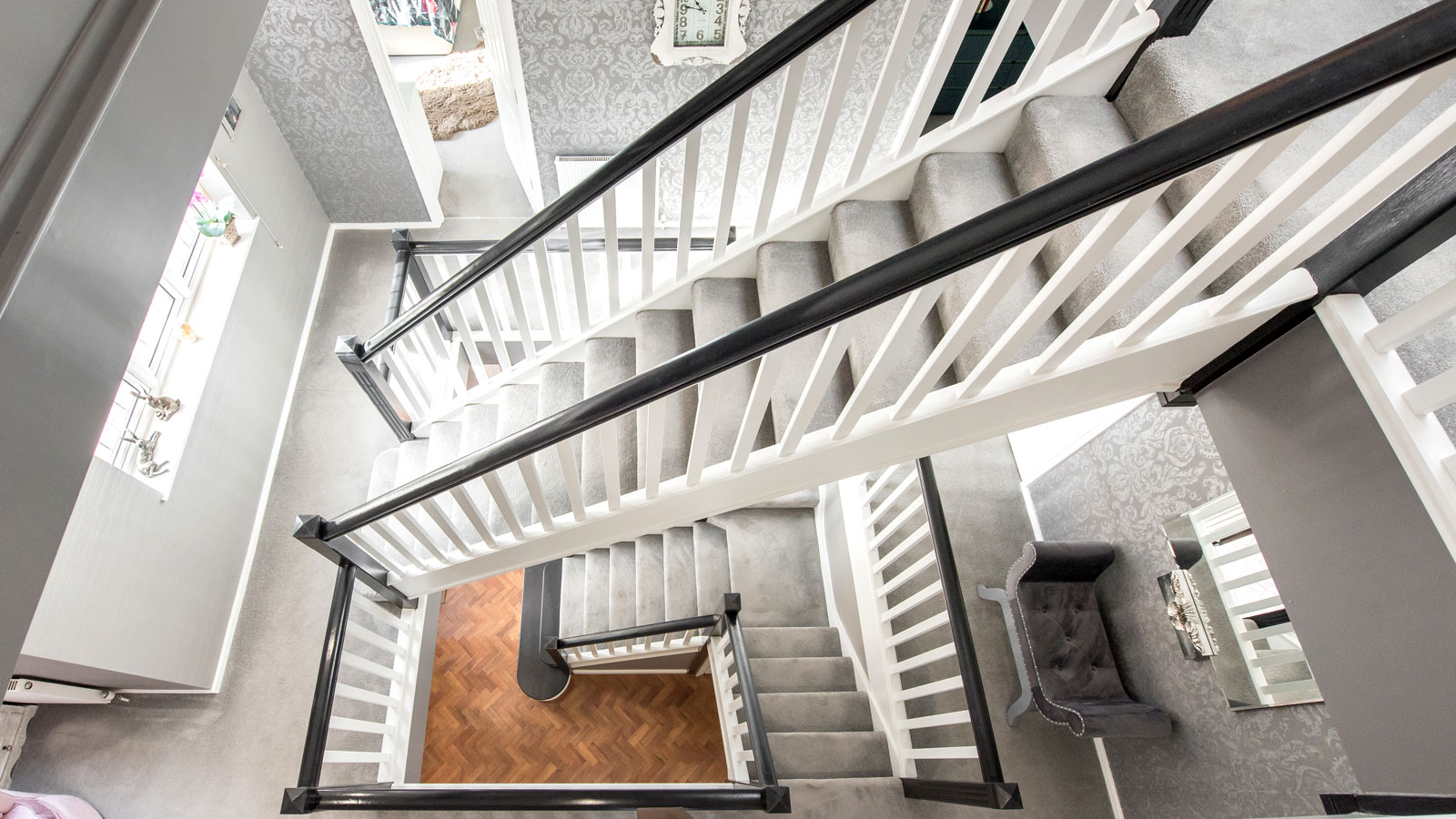
If you’re planning to install a new staircase, you’ll need to understand your budget. However, estimating costs can be difficult because many factors come into play. Materials and design are the two main elements that influence the overall cost.
Choose a simple wooden staircase design, and you will pay significantly less than you would for a custom ornate staircase. And don’t forget, there are labour costs to consider, as installation is definitely not a job for your average DIYer. Here we go through everything you might need to pay for to give you a clear idea of how much that budget will be.

Shakir is the founder of HandyHumans, a property maintenance business based in London. Passionate about craftsmanship and client satisfaction, he leads a team dedicated to transforming spaces and exceeding expectations.
How much does a new staircase cost?
The cost of the staircase itself can vary widely depending on a range of factors. Shakir Hussain, CEO at HandyHumans, says that they include the following:
- Size - the bigger the stairs, the pricier they will be.
- Shape - straight staircases are cheaper than curved or spiral ones because they are more straightforward to build and install.
- Complexity - the more twists and turns, the more expensive the stairs will be.
- Materials - some materials are cheaper than others. For example, oak or glass are more expensive than pine.
Martin Dooley, carpentry expert and director of MD Carpentry Workshop, shares what you can expect to pay for different scenarios: “A full staircase replacement typically costs between £1,500 and £4,000, depending on the design, materials, and access.”
He adds, “A straightforward softwood staircase will be at the lower end, while bespoke oak, glass, or metal designs can reach £8,000 or more.”
But other factors can also increase the price points. Dooley explains, “The overall cost will also depend on how much finishing or decorating work is needed around it.”
These costs are a general guideline outline of what you can expect to pay. But it's always worth checking online or heading to your local hardware store, which may be able to offer something for less. For example, you can get this Standard staircase from Selco Builders Warehouse for just under £400.
Bring your dream home to life with expert advice, how to guides and design inspiration. Sign up for our newsletter and get two free tickets to a Homebuilding & Renovating Show near you.
Alternatively, contact local builders or joiners to get quotes on your exact requirements.

Martin Dooley is a carpentry expert and the director of MD Carpentry Workshop. With decades of experience, he specialises in all aspects of carpentry, from bespoke staircases to complete home renovations.
Try these to enhance your new staircase
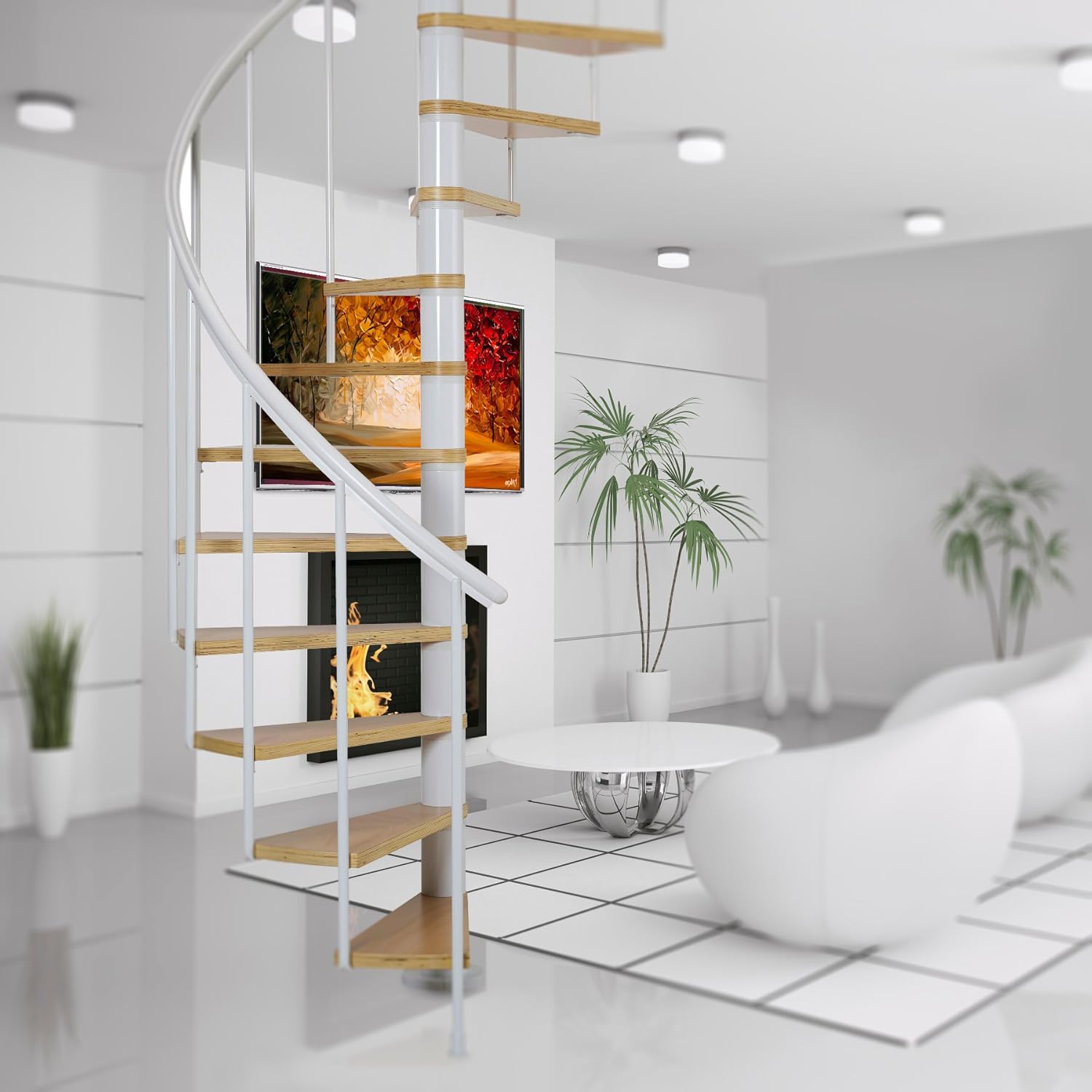
If you need a space-saving staircase, this kit has everything you need. It comes in white or grey, complete with 11 treads and a substantial landing platform, both finished in quality beech multiplex.
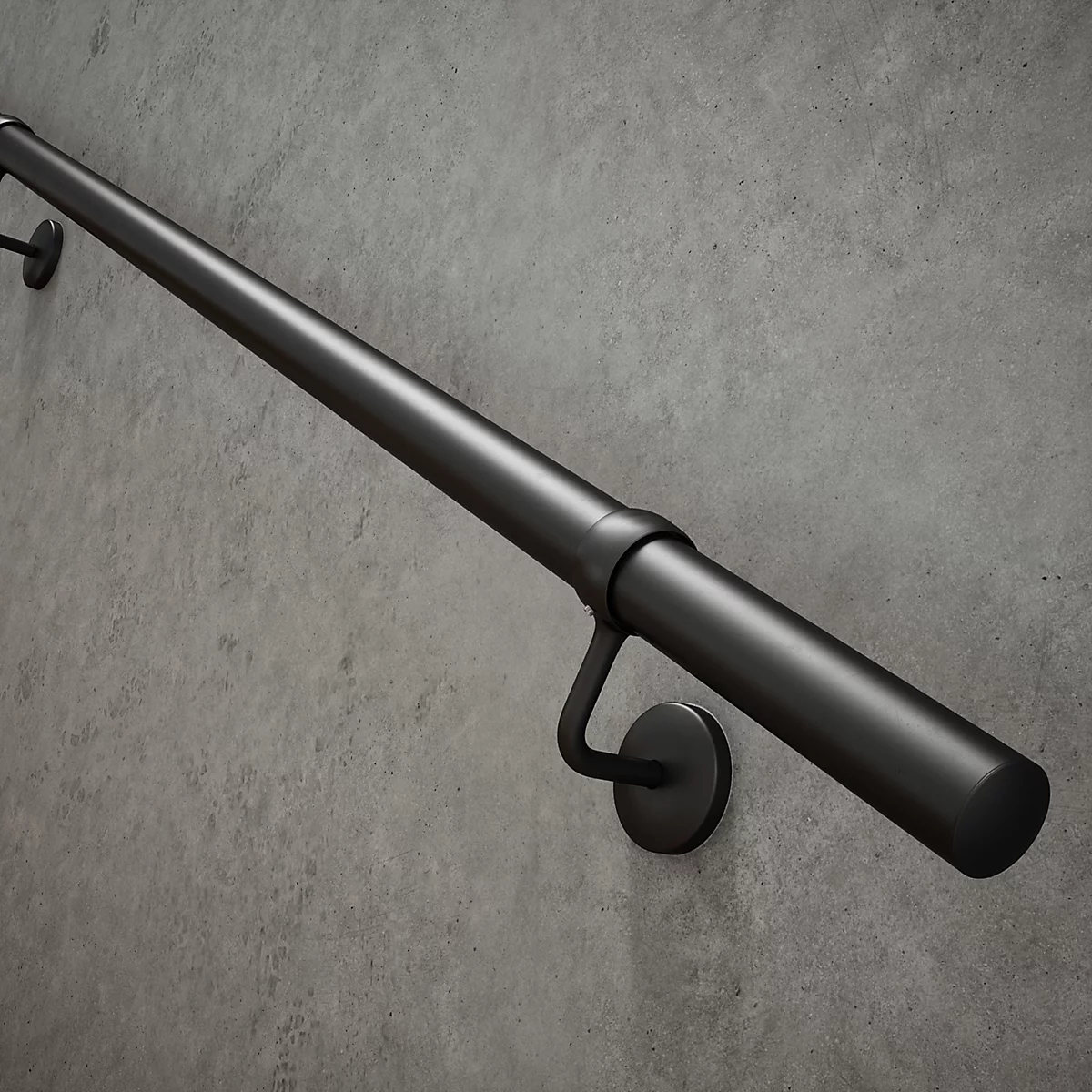
A steel smooth-to-the-touch handrail kit that includes 3 x 1.2m tubes (for a total of 3.6m), 2 x wall brackets, 2 x connecting wall brackets and 2 x shallow end caps plus screws and wall plugs.
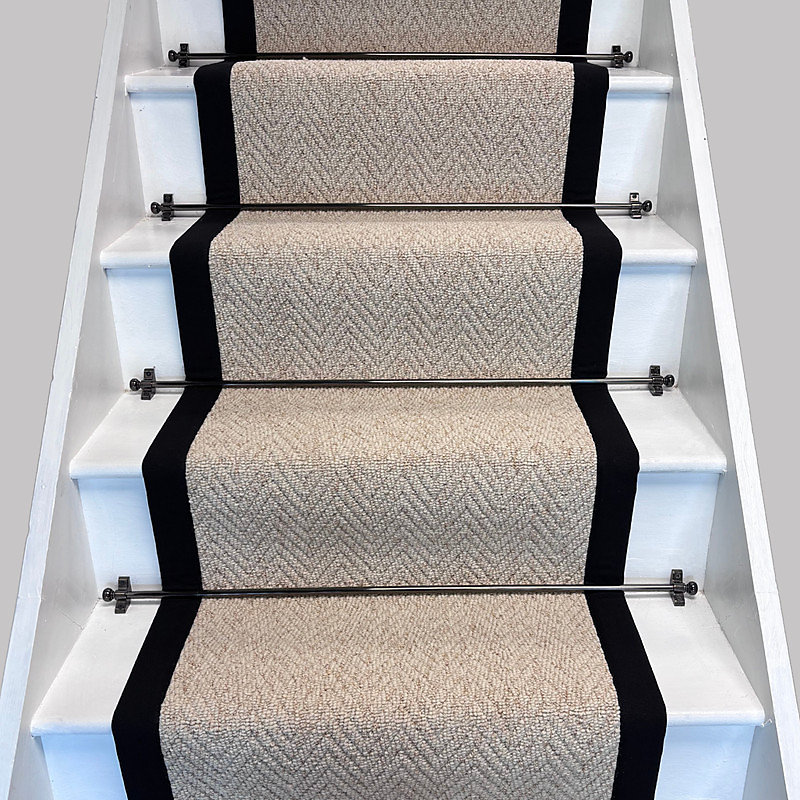
Add a touch of style and elegance with this Herringbone Stair Runner made from 100% cotton. Features a black edge and a cream fleck herringbone pattern that adds texture and depth.
How much to replace a staircase?
The first step in replacing a staircase is to remove the old one. The cost to get rid of an old staircase is around £300, but as you might expect, the cost is typically included in any quotes you get for the work.
So, now to the important point, how much does it cost to replace a staircase? Well, there isn’t a simple answer. For starters, the cost of your chosen staircase will significantly influence the overall cost of replacement. It makes sense that if you choose a staircase that costs £1,000, the replacement cost will be a lot less than if you had chosen a £6,000 staircase.
Labour costs are another factor that can’t be ignored in the cost of replacement. Hussain shares how much you can expect to pay, “Labour cost is usually between £1000 to £2500, depending on how complex the job is.”
Again this has a broad range, and as Hussain points out the complexity of the job is another factor. And, don’t forget, if you live in a major city like London, prices are typically higher. Check with a few local builders and carpenters to see how much they charge, as you might find a lower price.
Cost of replacing spindles and bannisters
If the tread and risers on your staircase are still in good working order, you may want to give it a new look with new spindles and/or bannisters. Dooley says, “Replacing spindles and bannisters is a great way to modernise an existing staircase without a full rebuild. You’ll usually spend between £400 and £1,200, depending on the materials and design.”
Labour costs can range from £200+, depending on the number of spindles and the complexity of the job. As a general guideline, a carpenter will charge around £200-£300 a day.
But what about the cost of materials? Dooley shares, “Pine and painted timber are more affordable, while glass panels or oak components create a higher-end finish at a higher price point.”
- Wood spindles – At the cheaper end of the market, you can get plain square pine spindles for as little as £2 each. More decorative softwood stair spindles are available for £5-£10 each, while hardwood stair spindles start at around £15 each.
- Metal spindles – Basic, plain spindles can be bought for around £4- £5 each. But as you might expect, more decorative and stylish metal spindles will be around £10+.
- Glass panels – The prices for glass stair panels will vary depending on size, thickness, style, and type (e.g., toughened). But expect individual panels to start at around £50-£100.
- Bannisters – Basic pine handrails can be bought for as little as £50- £100, but if you want a hardwood handrail, these will cost £150+ each. Length will affect the cost. For example, a short 1.2m hardwood bannister can cost £50+, while a more commonly used 4m option will cost at least three times as much.
How much does it cost to relocate a staircase?
You might not like the current location of your staircase and want to reposition your old one, or add a new one elsewhere. But be warned, this is not cheap as Hussain reveals, “This is where things get interesting (and expensive).” He continues, “A staircase cannot be located anywhere because you need the right space for this complex installation. You can try to use the current staircase if it fits the new space perfectly, but that would be pretty lucky.”
So when relocating, you typically have to invest in a new staircase, which will obviously add to the cost. But how much should you expect to pay? “The cost really depends on many aspects and for an accurate quote you would require a proper inspection,” explains Hussain.
But as a general guideline he suggests that, “a simple relocation can start from £3500 and go as far as £7000, depending on the materials used and if you have to make any changes to the flooring and surrounding walls.”
But if the job is more complex, prices start at, “£7000 and can go as far as £15,000 in extreme cases, assuming that there are significant structural changes to be done such as moving load-bearing walls or adding new supports, modifying walls etc.”
Dooley adds, "If any major structural work is involved. It’s important to involve a structural engineer and check Building Regulations approval before starting.”
So make sure to get a quote to adjust your budgeting costs accordingly.
FAQs
Does a new staircase add value?
Introducing a new staircase can add value to a property, but it will depend very much on what type of staircase is being added. If you are adding a standard or basic replacement it will add very little value. But it will add aesthetic appeal and could be a selling point, like anything new added to a property.
A high quality staircase made from a quality material such as hardwood, metal or glass add perceived value which will help achieve a higher selling price.
Do I need planning permission to change stairs?
Typically, you won’t need planning permission to replace or relocate your stairs if there are no alterations to the external structure of the building. You may need consent if the property is a listed building.
But there are building regulations that a staircase must comply with. Typically, a standard staircase complies with building regulations.
If you’re looking for a new staircase make sure to check out our modern staircase ideas and staircase lighting ideas. If you are thinking of adding carpet to your stairs check out our How to measure carpet for stairs guide.
Steve Jenkins is a freelance content creator with over two decades of experience working in digital and print and was previously the DIY content editor for Homebuilding & Renovating.
He is a keen DIYer with over 20 years of experience in transforming and renovating the many homes he has lived in. He specialises in painting and decorating, but has a wide range of skills gleaned from working in the building trade for around 10 years and spending time at night school learning how to plaster and plumb.
He has fitted kitchens, tiled bathrooms and kitchens, laid many floors, built partition walls, plastered walls, plumbed in bathrooms, worked on loft conversions and much more. And when he's not sure how to tackle a DIY project he has a wide network of friends – including plumbers, gas engineers, tilers, carpenters, painters and decorators, electricians and builders – in the trade to call upon.

